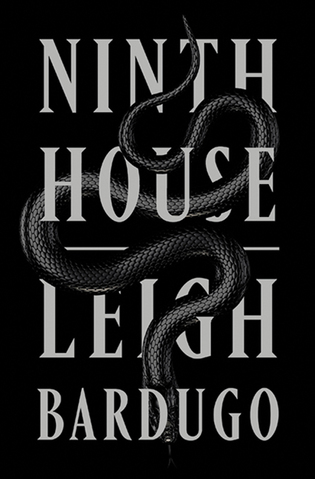 loading
loading
Arts & CultureReviews: January/February 2020An anthology of migration literature; a novel imagines dark magic in Yale's senior societies.  View full imageNinth House Sylvia Brownrigg’s novels Pages for You and Pages for Her will be on Audible in 2020. It’s a great setup for a collegiate fantasy: the revelation that Yale’s senior societies are bastions not merely of secrecy and privilege—but also of magic. Unbeknownst to the wider university, behind the crypt doors of Wolf’s Head, Manuscript, and Book and Snake (or “Shake and Bake” as a friend of mine used to call it) are going on rites of prognostication (so brokers can give good tips), necromancy, and muse-summoning, among other things. (After a midnight ritual in Beinecke, one Yale grad hopes to write another bestseller.) In Leigh Bardugo’s inventive, playful, and fairly gory novel, Ninth House is the even more secret society whose job is oversight: making sure the magic used by the other eight houses does not get out of hand. So far, so grown-up Harry Potter—with Bulldogs. And Bardugo, author of the young-adult Six of Crows series, uses elements that bring other stories to mind too. Like the kid in The Sixth Sense, her protagonist, Alex, can see dead people (here called “Grays”). For that rare skill she is recruited by Lethe and given a place at Yale far from her messy life in Los Angeles, where drug addiction had helped free her from the mental torment of seeing so many ghosts. Alex (short for Galaxy) is morally ambiguous, like the best crime solvers, with violent secrets in her past and a life that has taught her how invisible the non-elite are to the elite. When a “town” girl, who dealt weed to students, is found brutalized beside Payne Whitney gym, Alex guesses that there’s more to her murder than meets a Yale-centric eye. Any novelist concerned with magic, hell, and the afterlife will end up writing about good and evil. The evil that interests Bardugo is inextricable from power structures both within Yale—cocky rich girls and boys who never expect to be punished for their crimes and misdemeanors—and without, in gritty, haunted New Haven. The city is one of the book’s best-drawn characters: Alex’s mentor at Lethe is Daniel Arlington, the scion of a local family. “New Haven wears its scars,” he tells Alex, ominously, before evil forces remove him. Even after a dramatic climax at the president’s house, the novel’s ending points to a sequel . . . unless this year’s secret-society members can somehow intervene.
|
|